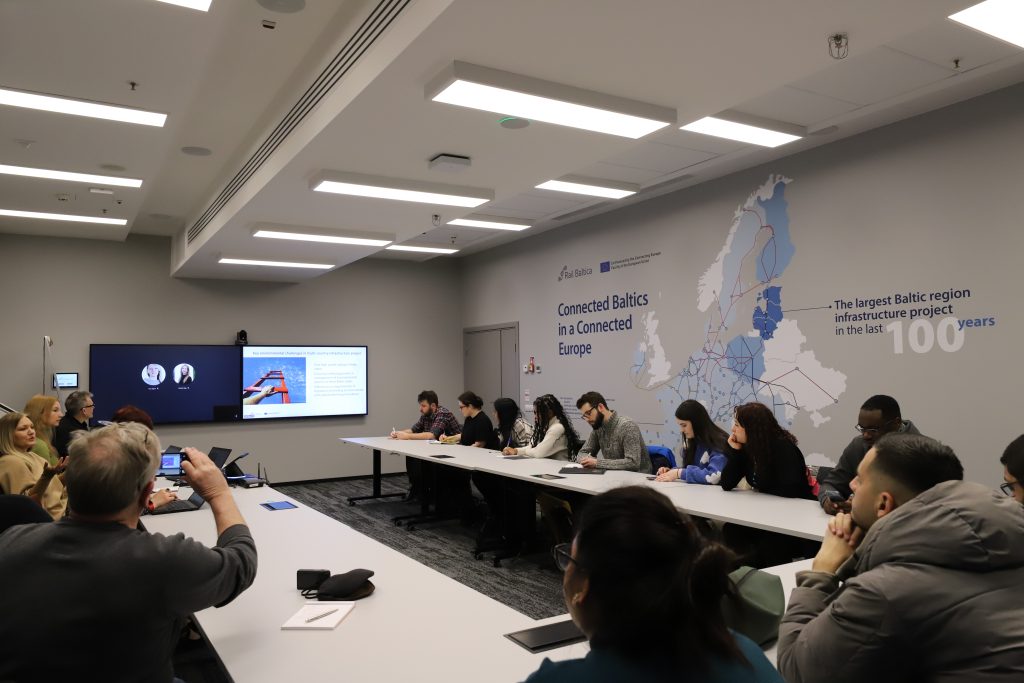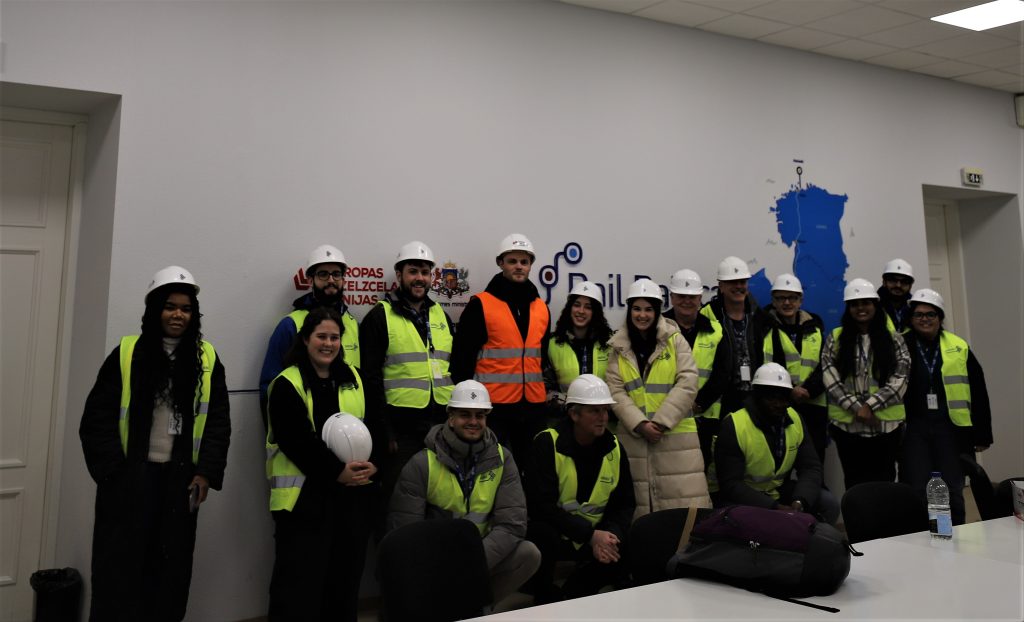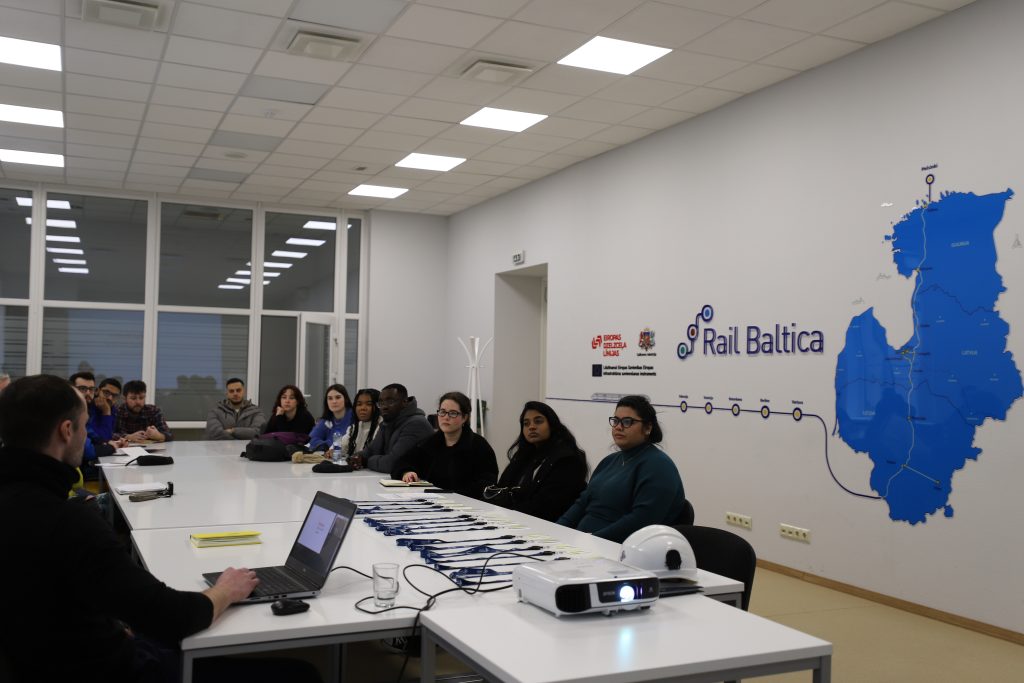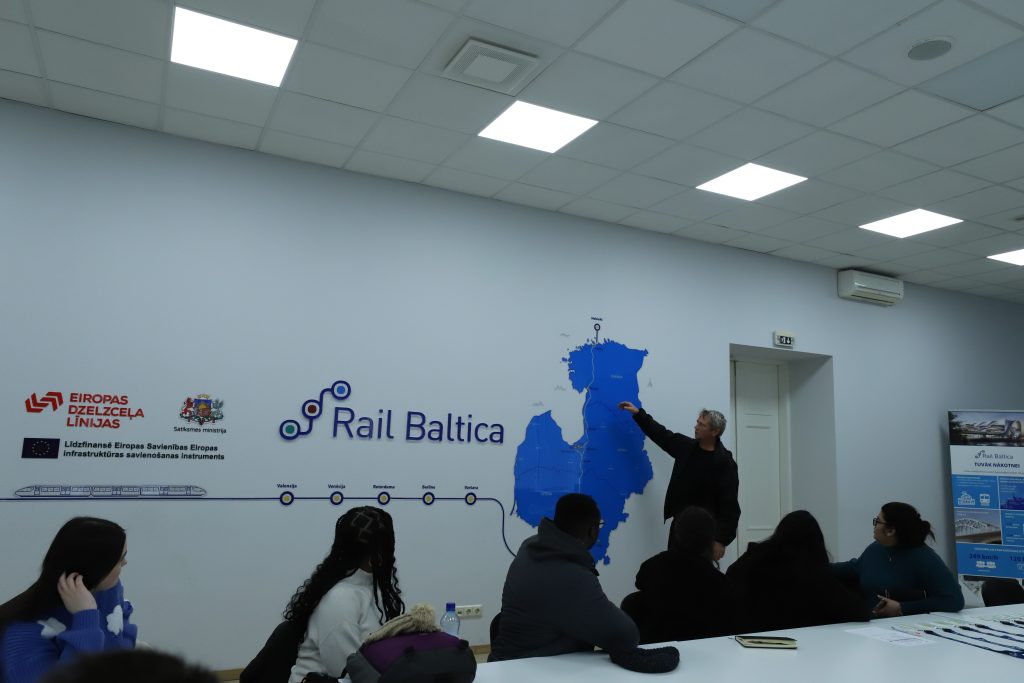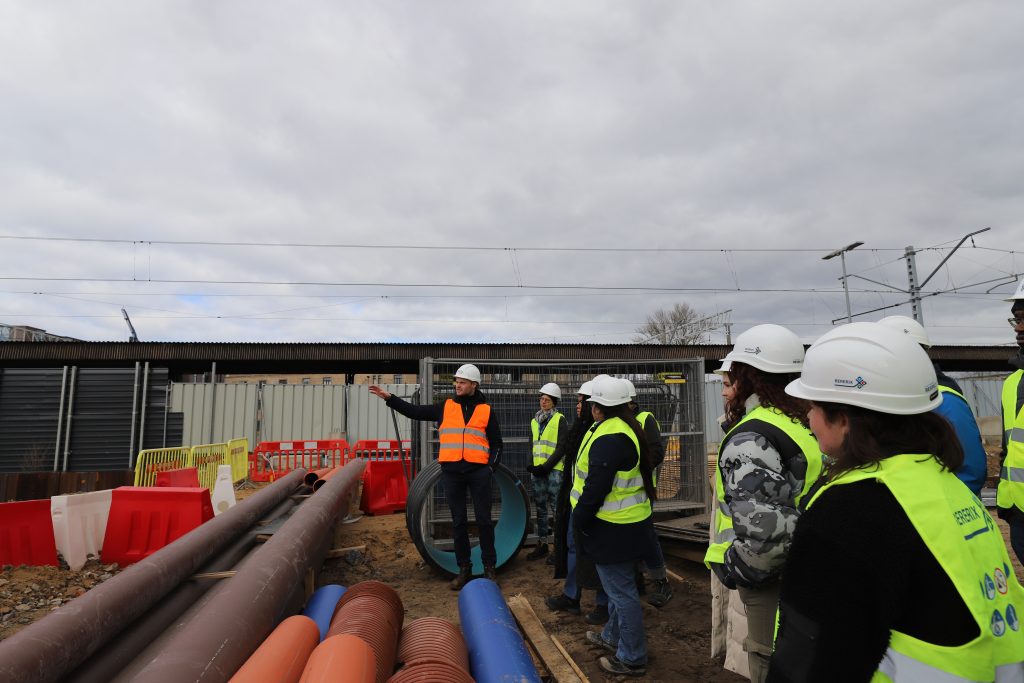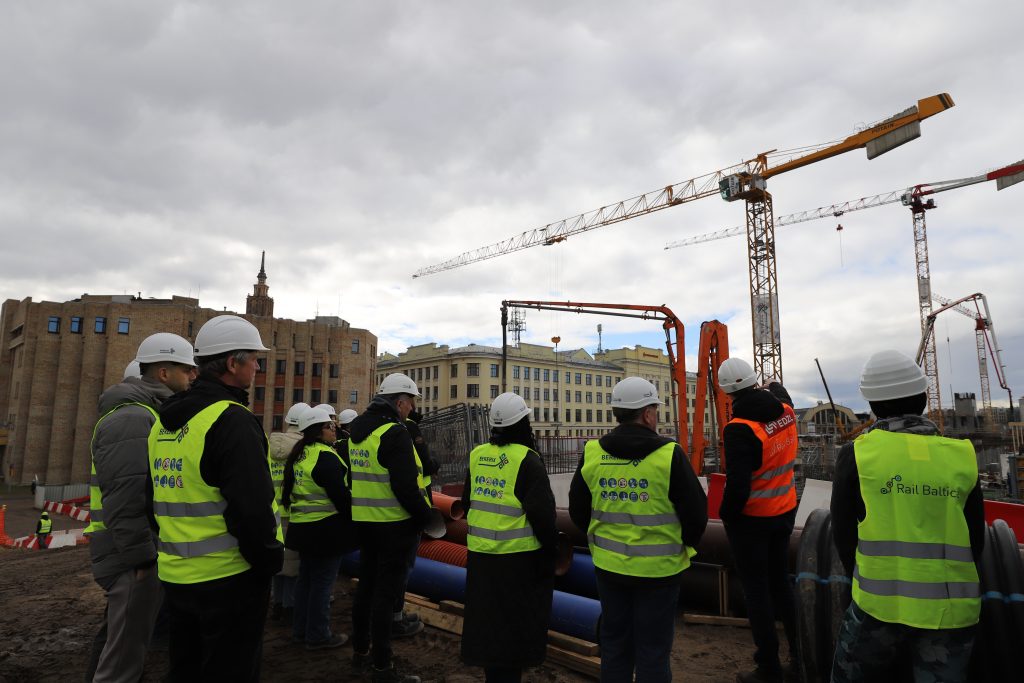At the end of March, Rail Baltica team had a pleasure to welcome a group of London South Bank University master’s students who were interested in learning more about the Baltics’ most ambitious railway transport infrastructure project. The students specialize in urban planning and design, and came to Latvia to explore sustainability issues and to draw out good practice that could potentially be applied in the United Kingdom.
“As a large-scale transport project that seeks to promote sustainability and environmental values, Rail Baltica is a compelling case study for our students, and a few usually choose to focus on Rail Baltica in their coursework. This trip represents a rare chance for the students to gain invaluable experiential insight into the significance of Rail Baltica, which transcends its practical importance. Symbolically, it sends a powerful message about the reunion of the Baltic states with the rest of Europe,” says Neil Adams, Senior Lecturer Spatial Planning at London South Bank University.
The week-long programme started with a visit to Rail Baltica global project’s delivery organizations – the joint venture RB Rail AS and the national implementing body Eiropas Dzelzceļa līnijas, followed by a visit of the Rail Baltica construction site at the Riga Central Station.
Together with the Rail Baltica spatial planning and environment team the students discussed the opportunities and challenges involved in constructing a greenfield project of this scale, spanning multiple borders, and subject to an array of regulations and procedures aimed at alleviating its environmental impact, including on inhabitants and their health. The students learnt that, to address environmental concerns, the project implementers consider various factors such as noise and vibrations, preservation of animal migration patterns, safeguarding of flora and fauna, mitigation of barrier effects, conservation of natural environments, enhancement of landscape design, and ensuring the resilience of infrastructure in the face of climate change, to name a few.
“When it comes to Rail Baltica’s impact on the environment, we often think of the positive aspect of a fully electrified railway line with almost zero emissions. However, it is also important to discuss the efforts made during all phases of the project, from planning to operational phase, to mitigate and minimize any potential environmental impact. I am grateful for the interest in our project and the productive conversation with the students today,” added Iveta Jēgere, Spatial Planning and Environment Team Lead at RB Rail AS.
At Rail Baltica national implementing body in Latvia, Eiropas Dzelzceļa līnijas, Senior Technical Expert Jānis Freimanis gave an overview of the development and construction progress of the Rail Baltica railway line at the Riga Central Station. Jānis Freimanis has established good cooperation with the university and has already presented the Riga Central Station concept and construction progress to several groups of young professionals.
To bear witness to the presentation they had just seen, the students concluded their visit to Rail Baltica with a tour of the construction site of the Rail Baltica railway line in Riga Central Station. “This ambitious undertaking represents the most significant and far-reaching infrastructure project currently underway in the city, shaping its physical landscape, mobility, and development potential for many years to come, our team is proud to present the concept and the progress of works in Rail Baltica Riga Central Hub,” says Jānis Freimanis.
London South Bank University is a public university located in London, United Kingdom, established in 1892. It offers a range of undergraduate, postgraduate and research degrees, excelling in areas such as engineering, building and architecture, health and social care, business and computing. The Rail Baltica global project has been collaborating with the University’s Urban Design and Planning course for several years, fostering several successful exchanges.

